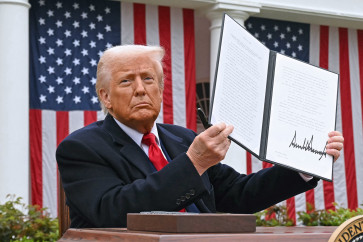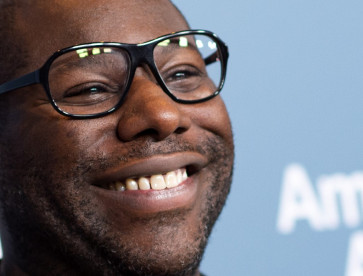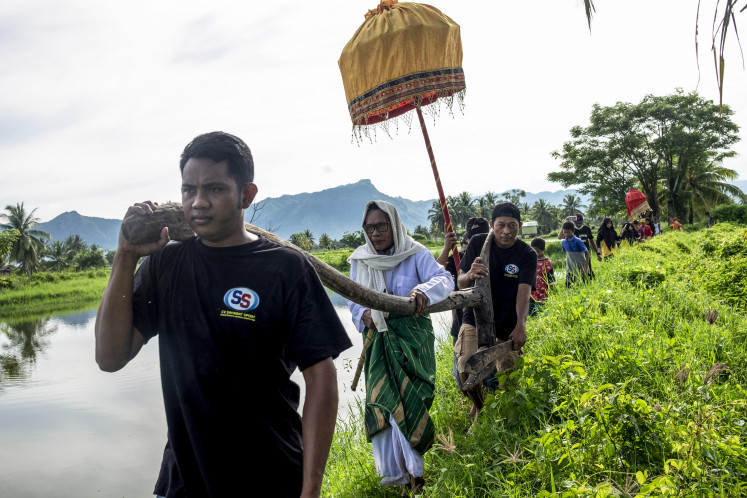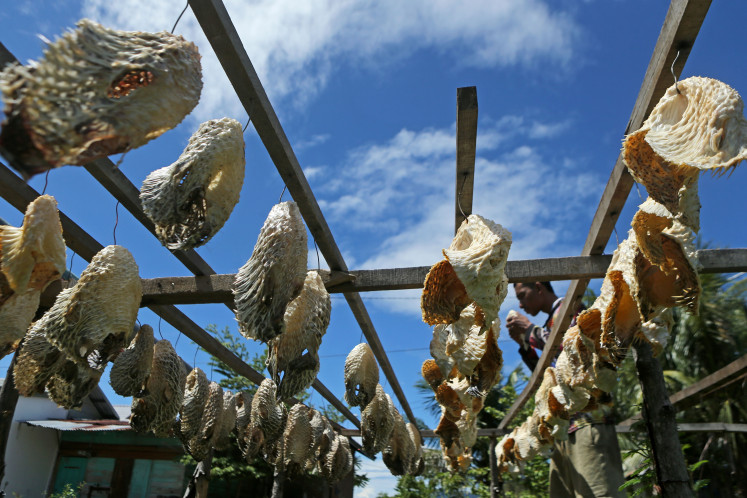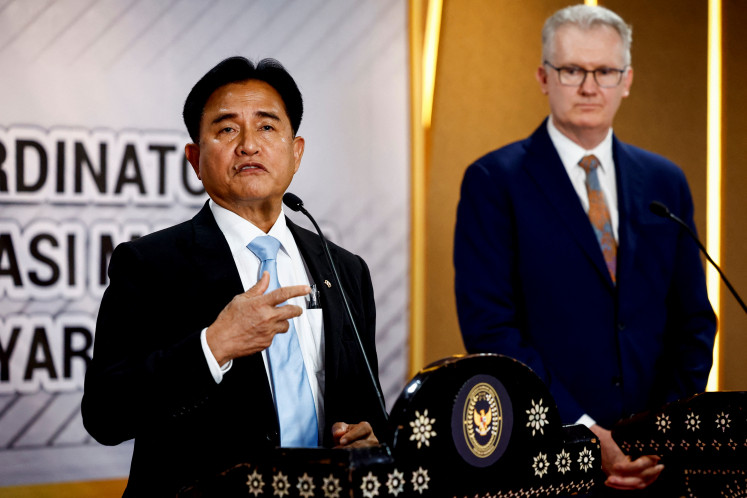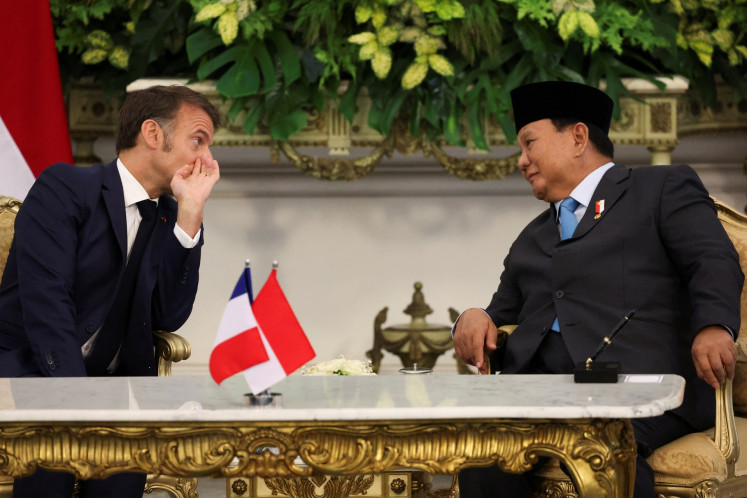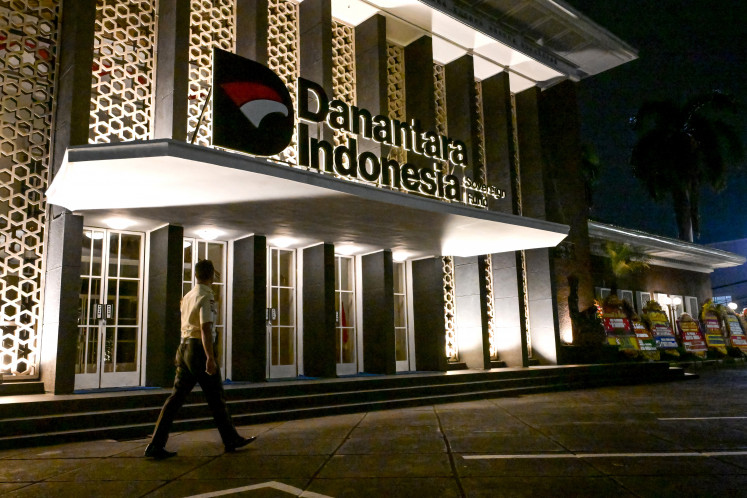Economy slows as focus shifts to politics
Policymakers are now focusing on the general and presidential elections rather than on the economy.
Change text size
Gift Premium Articles
to Anyone
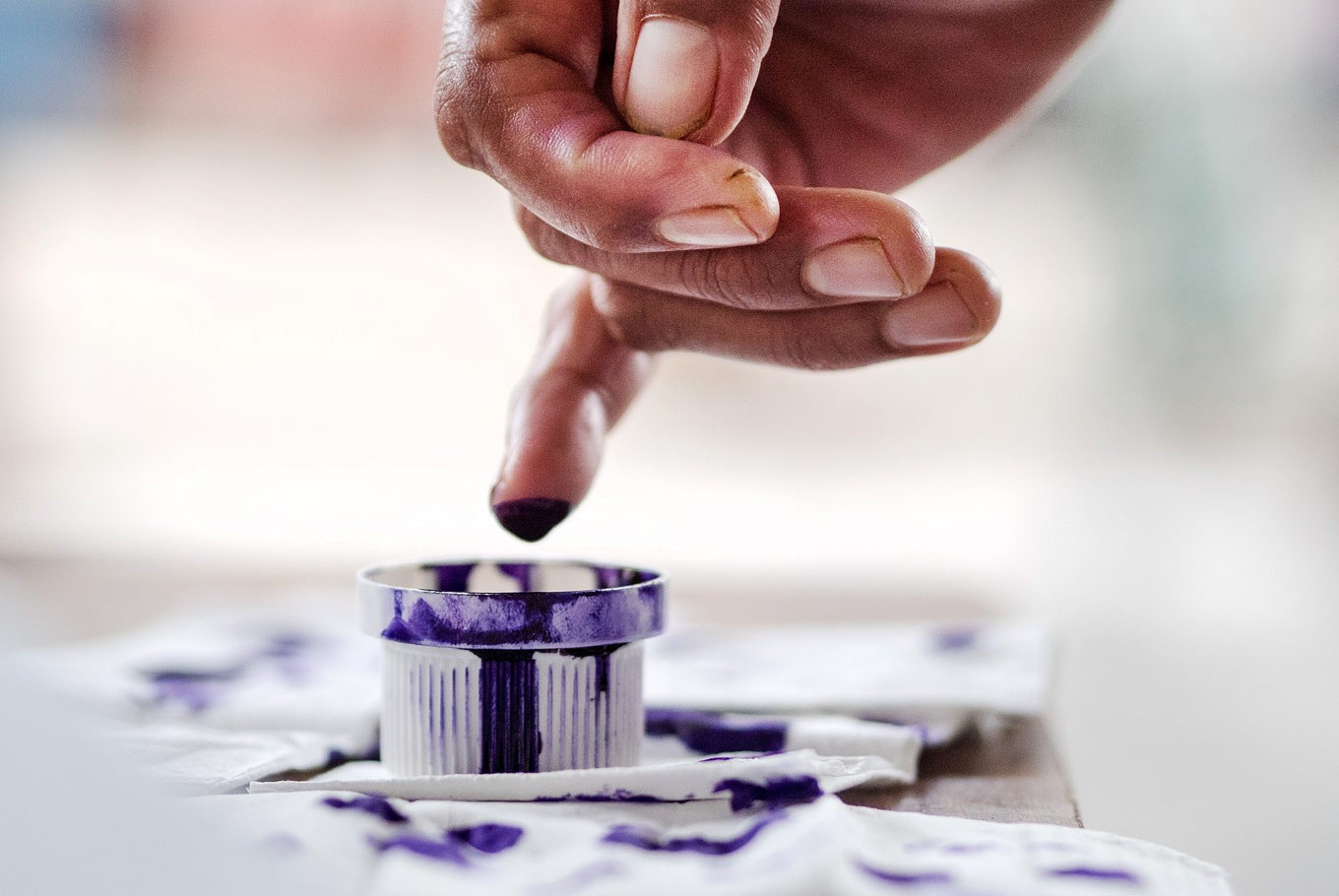 A man dips his finger in indelible ink in East Denpasar, Bali, after voting in the Bali gubernatorial election. More than half of the country’s population cast their ballots in the simultaneous regional elections. (JP/Anggara Mahendra)
A man dips his finger in indelible ink in East Denpasar, Bali, after voting in the Bali gubernatorial election. More than half of the country’s population cast their ballots in the simultaneous regional elections. (JP/Anggara Mahendra)
T
he economy has begun to show signs of slowing down as Indonesia is entering the year of politics. Simultaneous elections in 171 regions have just been completed in a peaceful and legitimate manner.
The registration of candidates running for House of Representatives seats is underway, while the registration of presidential and vice presidential candidates is scheduled for Aug. 4-10. The campaign will start on Sept. 23, and the general and presidential elections will be held simultaneously on April 17.
However, the economy is experiencing some turbulences due to the massive outflow of foreign funds from the country’s capital and bond markets, which has led to the sharp fall of the rupiah. An estimated US$7 billion in foreign funds has been pulled out of the country since January.
The Jakarta Composite Index (JCI), the main gauge of the Indonesian Stock Exchange (IDX), has lost 7.8 percent, while the rupiah has depreciated by around 5.6 percent against the United States dollar, making it one of the hardest hit currencies in the region.
Bank Indonesia (BI) has increased its benchmark interest rate quite aggressively to the level of 5.25 percent. With the increase in global uncertainty as a result of the hike in the US Federal Reserve’s (Fed) interest rate, the escalation of trade tension between China and the US as well as the rise in oil prices, the Indonesian economy is expected to weaken further.
Policymakers are now focusing on the general and presidential elections rather than on the economy. Many ministers from political parties are more concerned with politics than policies. Furthermore, some of the top economic policymakers, such as Industry Minister Airlangga Hartarto, who is also the chairman of the Golkar party, and Finance Minister Sri Mulyani Indrawati, are potential vice president candidates for incumbent President Joko “Jokowi” Widodo in the 2019 presidential elections.
The policies also tend to be more populist, as indicated in the rise in social spending, such as village development funds, fuel subsidies and infrastructure facilities in the regions.
In facing the external pressures, a serious response practically came only from BI. BI as an independent institution has the justification to take necessary action, such as raising the interest rate, even though it is not in line with Jokowi’s pro-growth policy. BI currently focuses more on stability than growth.
However, there is no significant synergy among BI, the finance minister and the coordinating economic minister in coping with global uncertainties. No initiatives are made to further support the economy, which makes the economic growth target of 5.4 percent a rather steep order.
Despite the economic difficulties, the President continues to lead the polls, and he is likely to be reelected. Prabowo Subianto, who lost to Jokowi in the 2014 presidential election, will probably challenge the incumbent again in the upcoming election. His electability is relatively high, yet quite far behind that of Jokowi. However, no political party coalition has been formed yet to back Prabowo, while his own political party is not enough to support him as the presidential candidate.
Determining the running mate of Jokowi is important, not only to increase his electability, but also for the continuation of Jokowi’s legacy, especially on economic development. Furthermore, it is also important with regard to the presidential election of 2024.
Choosing a technocrat like Airlangga or Sri Mulyani as a VP candidate would be good for the continuation of the economic agenda, but Jokowi is also under pressure to consider a running mate with strong Muslim credentials, as Jokowi is considered to lack significant support from the Muslim community.
Actually, it is not true that Jokowi lacks strong support from Muslims. Only certain radical and progressive Muslims are critical of Jokowi.
If Jokowi is reelected, he could refocus on economic policies even before his inauguration, but until the elections, the government will find it hard to pay attention to the global pressures.
Although various surveys show that economic issues are at the top of voters’ attention, only Golkar has seriously established economic programs for
providing basic goods, employment and housing and for implementing the industry 4.0 transformation.
The largest political party, the PDI-P, is sticking to its rhetoric for disadvantaged groups (wong cilik). Gerindra is continuing with its rhetoric of economic nationalism. The political parties and their candidates are aware that personal popularity is more important than a political platform.
For most politicians, politics is more about interests than competing on programs.
What Jokowi needs to do in his likely second term as president is to realize his promise to increase economic growth to 7 percent and to reduce the poverty rate to 7 percent. Certainly, the 7 percent growth target is difficult to achieve, but 6 percent should be a reasonable target.
Accelerating economic reform is needed in his second term of presidency, even though this year his economic program is more populist.
For this reason Jokowi needs a running mate with a strong technocratic background and one that has been directly elected, such as Airlangga Hartarto. His party, Golkar, got a good result in the recent regional elections.
Sri Mulyani could be in this category, too. However, she does not have political party support. In addition, she has never been elected. Nevertheless, both Airlangga and Sri Mulyani should not lose the focus on economic reform. Their credibility rests on the economy.
Since political decisions in this country are generally made in the last minute, it looks like Jokowi will do the same thing in deciding his running mate. This decision also needs consultation with members of the political coalition that supports his bid for a second term in office. Each of the political parties would prefer proposing their own candidate as Jokowi’s running mate.
Despite the low potential for conflicts in the upcoming general and presidential elections, investors and the business community will likely be in a wait and see mode.
***
The writer is a senior fellow at the Center for Information and Development Studies and the Habibie Center.



